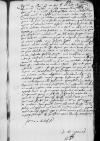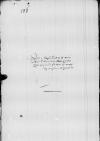List #1996
Ioannes DANTISCUS do Tiedemann GIESEHeilsberg (Lidzbark Warmiński), 1538-11-23
Regest polski:
Dantyszek zawiadamia Giesego, że przeczytawszy powtórnie mandat królewski przesłany przez [Stanisława] Kostkę, zorientował się, iż [ostatni] list, który otrzymał od króla [Zygmunta I] (przesłany do wiadomości Giesego), nakazujący pieniądze z podatku dostarczyć i rozliczyć w czasie wiosennego sejmu, jest datowany o kilka dni później niż mandat. Treść skierowanego do Dantyszka listu królewskiego jest zatem zapewne tożsama z treścią listów do Giesego i innych panów [pruskich], prosi jednak Giesego o potwierdzenie. Załącza kopię odpowiedzi, której udzielił Kostce.
Dantyszek jest ogromnie zaniepokojony sytuacją w królestwie, stanem zdrowia króla oraz postępowaniem królowej [Bony Sforzy]. Nie martwi go jednak jej niełaska, dopóki czuje się niewinny w obliczu Boga.
Dantyszek prosi Giesego o opinię na temat dołączonego epigramatu, który przesłał był w odpowiedzi na wiersz Poliandra, kolejny w ich poetyckiej dyspucie, zapoczątkowanej epitafiami dla Johanna Reynecka. Być może postąpił zbyt pochopnie, nie mógł jednak powstrzymać się od reakcji.
Rękopiśmienne podstawy źródłowe:
Publikacje:
| ||||||||
Tekst + aparat krytyczny + komentarzZwykły tekstTekst + komentarzTekst + aparat krytyczny
Reverendissimo in Christo Patri et Domino, domino
Reverendissime in Christo Pater et Domine, frater et amice carissime et honorande.
Salutem et soliti amoris commendationem.
Cum heri ad Dominationem Vestram Reverendissimam absolvissem cf.
De re nostra publica, si ad eum modum ad omnia nobis erit connivendum, nihil boni sperare possum. In
Addidi quosdam cf.
Dominationem Vestram Reverendissimam iterum iterumque sospitem esse et felicem annis plurimis precor cupioque summopere.
Ex
Reverendissimae Dominationis Vestrae deditissimus frater
[1] On November 21 Dantiscus received six letters from Cracow: cf.
[2] The texts of both epitaphs for Reyneck – by Poliander and cf.
[3] iis nuptiis i.e. the wedding of Dantiscus’ sister
[4]
Further poetic discussion between Dantiscus and Poliander, which Dantiscus relates here to Giese, consists of Poliander’s epigram preserved in his cf.


 BCz, 245, p. 106
BCz, 245, p. 106